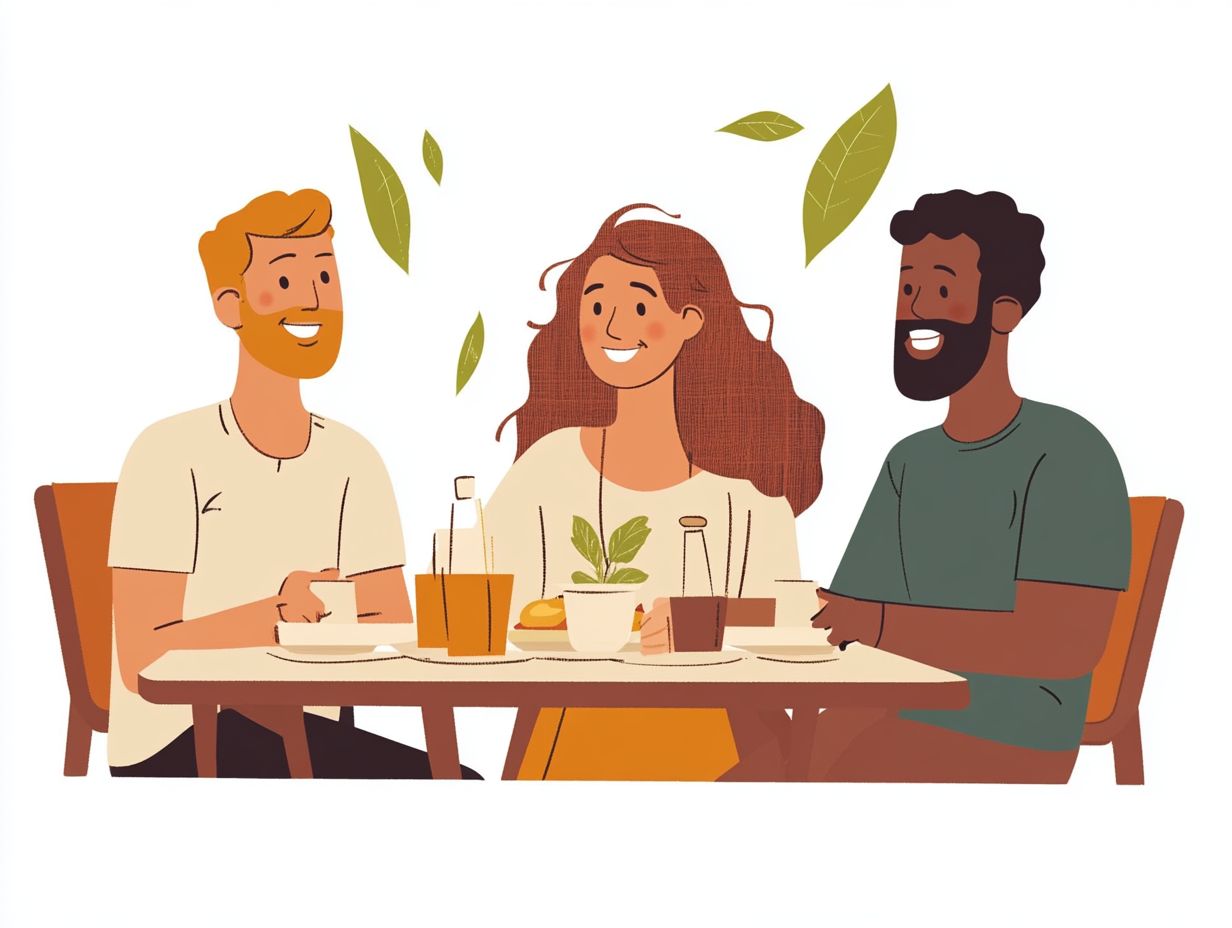How to Build Stronger Relationships
Building strong relationships is crucial for your mental and emotional well-being, yet many individuals find it challenging to both create and sustain these essential connections.
Healthy relationships not only enhance your life but also offer invaluable support during difficult times.
This article delves into the key facets of relationship-building, such as effective communication, active listening, trust, respect, conflict management, and tips for building lasting connections.
Discover exciting ways to strengthen your relationships today!
Contents
- Key Takeaways:
- Understanding the Importance of Strong Relationships
- Communication and Active Listening
- Building Trust and Respect
- Ways to Foster Trust and Respect in Relationships
- Managing Conflict
- Nurturing and Maintaining Relationships
- Frequently Asked Questions
- 1. What are some effective communication strategies for building stronger relationships?
- 2. How can I show appreciation for the people in my life and strengthen our relationships?
- 3. How important is trust in building stronger relationships?
- 4. Can setting boundaries help build stronger relationships?
- 5. How can conflict resolution improve relationships?
- 6. What role does forgiveness play in building stronger relationships?
Key Takeaways:

Healthy relationships positively impact mental and emotional well-being.
Effective communication and active listening are crucial for building strong relationships.
Trust and respect are the foundation of any strong relationship and can be fostered through open and honest communication.
Understanding the Importance of Strong Relationships
Strong relationships are essential not just for your personal happiness, but also for your overall emotional and mental well-being. They create a solid support network that helps you navigate life s challenges with greater ease.
By prioritizing the building and maintenance of these relationships, you cultivate trust and emotional connections that can lead to a more fulfilling life, both personally and within your community.
This sense of belonging can profoundly influence how you approach conflict resolution and relationship dynamics, making it crucial to recognize their significance.
The Impact of Healthy Relationships on Mental and Emotional Well-being
Healthy relationships play a vital role in enhancing your mental and emotional well-being by providing essential emotional support, enriching your sense of identity, and promoting personal growth.
These connections give you a profound sense of belonging, which can be remarkably therapeutic. When you spend quality time with loved ones whether family or close friends you create opportunities for shared experiences that foster joy and alleviate feelings of loneliness.
Strong relationships often result in improved communication skills and increased resilience. This enables you to navigate life s challenges with greater ease. As you nurture these meaningful bonds, you re likely to experience lower levels of stress and anxiety, ultimately bolstering your overall mental health and encouraging a more optimistic outlook on life.
Communication and Active Listening
Effective communication serves as the cornerstone of any strong relationship, enabling you to forge deeper emotional connections and navigate conflicts with understanding and respect.
By practicing active listening, you can pick up on emotional and nonverbal cues, enriching your conversations and fostering a culture of compromise and respectful disagreement.
Mastering these skills can elevate superficial interactions into profound connections that withstand the tests of time.
Key Skills for Effective Communication and Listening

Key skills for effective communication include active listening, recognizing emotional cues, and practicing compromise during conversations.
To elevate your interactions, consider adopting specific communication techniques that foster understanding.
For instance, summarizing what the other person has said helps ensure clarity and demonstrates that their input is genuinely valued.
Asking open-ended questions encourages deeper dialogue, allowing for richer insights into the speaker’s thoughts and feelings.
Nonverbal cues, like maintaining eye contact and nodding, can enhance engagement, signaling your genuine interest in the conversation.
By incorporating these methods, you can create a more meaningful exchange, ultimately leading to stronger relationships and more fulfilling connections.
Building Trust and Respect
Building trust and mutual respect in your relationships is crucial for fostering an emotional connection and ensuring long-term success.
These elements create a safe environment where you can express your personal needs and goals without the fear of judgment.
This foundation helps you resolve conflicts healthily and encourages accountability, ultimately making your relationships more resilient over time.
Take the first step today to deepen your connections!
Ways to Foster Trust and Respect in Relationships
Fostering trust and respect in your relationships demands intention and commitment from both partners.
Make open communication your top priority and emphasize accountability.
To genuinely nurture this vital bond, have regular check-ins where both of you can freely express feelings and concerns in a safe environment.
These discussions not only clear up misunderstandings but also reinforce transparency.
Practicing active listening fully engaging with each other s words without interruptions can deepen your emotional connection.
By being receptive and validating one another s feelings, you can build a strong foundation of trust that fosters mutual respect and understanding.
Managing Conflict
Managing conflict is essential for fostering strong relationships, as disagreements are inevitable when two individuals bring their distinct perspectives and needs to the table.
By approaching conflicts with adaptability and being aware of each other s feelings, you can transform potentially contentious discussions into productive dialogues.
In this way, respectful disagreement becomes a bridge, not a barrier.
Effectively resolving conflicts can strengthen relationships and deepen emotional connections.
Strategies for Resolving Conflicts in Relationships

- Negotiate openly.
- Communicate your feelings honestly.
- Seek emotional support when needed.
These methods not only foster understanding but also strengthen the bonds between you and others.
Emphasizing trust is crucial; when both you and the other party feel secure, you re more likely to express your feelings honestly.
Active listening plays a vital role, allowing you to hear and validate the other person’s perspective.
Conflict resolution techniques, such as brainstorming solutions together or using I statements, can help prevent misunderstandings and create a collaborative atmosphere.
Ultimately, integrating these strategies encourages healthier communication patterns, making it easier to navigate future challenges.
Nurturing and Maintaining Relationships
Nurturing and maintaining strong relationships require consistent investment of quality time and emotional support.
Over time, these efforts cultivate deeper emotional fulfillment and a stronger sense of shared identity among partners, enriching the vitality of the relationship.
Your commitment to nurturing these bonds is essential for fostering intimacy and ensuring their longevity.
Tips for Keeping Relationships Strong and Healthy
- Prioritize emotional support.
- Engage in effective communication.
- Spend regular quality time together.
Engaging in shared activities like cooking a meal together or taking leisurely walks can deepen your connections and create lasting memories.
It s essential to carve out time for these moments; they promote intimacy and ensure both partners feel valued and understood.
Thoughtful gestures, like leaving a sweet note or planning a surprise date night, nurture your bond further.
Keep in mind that open dialogue about feelings and aspirations is vital; it fosters trust and understanding, allowing both of you to grow together harmoniously.
Frequently Asked Questions
1. What are some effective communication strategies for building stronger relationships?

Good communication is essential for building strong relationships. Some strategies include active listening, expressing yourself clearly and calmly, and being open and honest with your feelings.
2. How can I show appreciation for the people in my life and strengthen our relationships?
One way to strengthen relationships is by showing gratitude and appreciation for the people in your life. This can be done through words of affirmation, acts of kindness, or simply spending quality time together.
Start applying these tips today and watch your relationships thrive!
3. How important is trust in building stronger relationships?
Trust is essential for strong relationships. Without it, connecting with someone deeply becomes difficult.
Be honest, reliable, and consistent to build trust in your relationships.
4. Can setting boundaries help build stronger relationships?
Yes! Setting boundaries strengthens relationships by clarifying each person’s needs and limits.
Communicate and respect these boundaries to maintain balance.
5. How can conflict resolution improve relationships?
Conflicts happen in every relationship, but handling them well is key. Use effective communication and active listening pay full attention and respond thoughtfully to find a solution that works for everyone.
6. What role does forgiveness play in building stronger relationships?
Forgiveness is vital for healing and rebuilding trust. It shows you want to move forward rather than cling to negative feelings.





